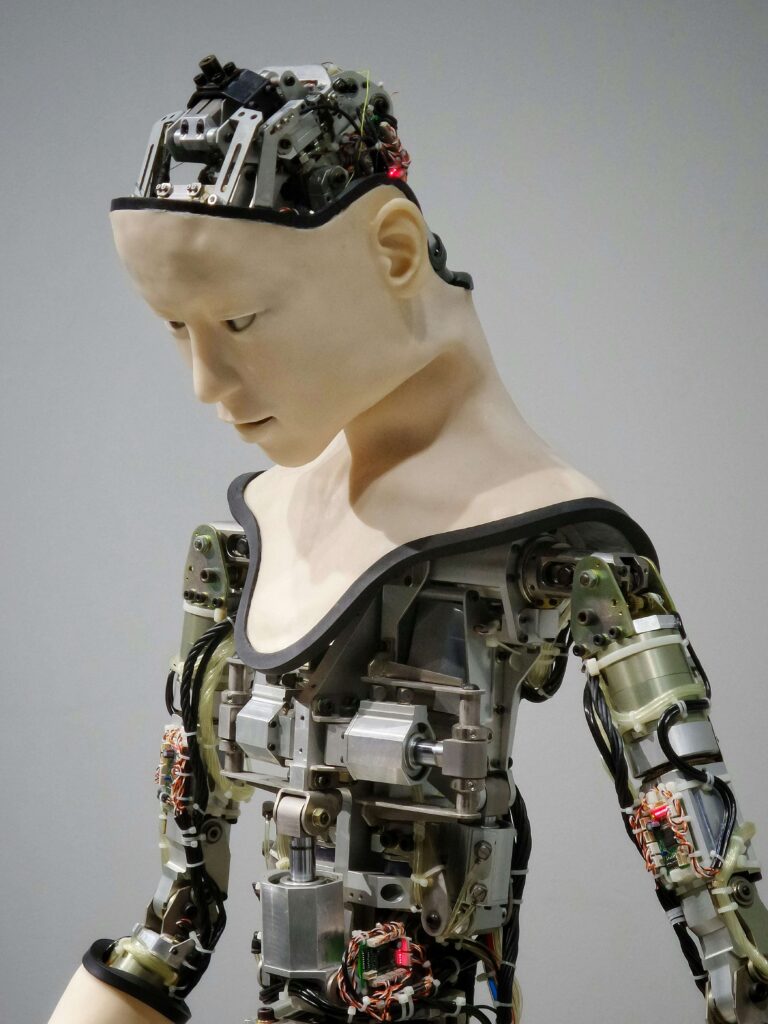It’s the debate that never ends:
Is it a leap of faith to believe in Jesus? Are science and religion compatible? Does a person have to abandon all sense and reasoning to believe God exists—and that he would come to live among us and die for us?
Consider this headline in a major newspaper in 2015: “‘Faith vs. Fact:’ Why religion and science are mutually incompatible.” The ensuing article outlined the disjunct between science and Christianity and argued that the methods by which science and religion seek to understand the world are opposed to each other.
Do you agree?
Nothing I lay out in this article will convince you God exists if you’ve already decided to believe he doesn’t exist.
I could end this conversation right now by pointing out the human tendency to believe what we set out to believe, even in the face of indisputable evidence. Nothing I lay out in this article—no straight-up facts or complicated scientific models—will convince you God exists and that the creation of the universe is his doing if you’ve already decided to believe he doesn’t exist.
Faith runs soul-deep.
But if you’re truly ready to see why the 2015 article may have gotten it wrong—why science and Christianity not only coexist but also support each other—read on!

Hey, I’m Lauren, author of YA Christian fiction and
blogger for teens ready to level up in faith.
Subscribe for inspiring content and free YA ebooks!
In This Article
Is it Reasonable to Believe There is a God?
Nothing happens without something causing it to happen.
Ever heard of the law of casualty? Basically, it states that every change in nature is produced by some cause. We know it better as cause and effect. Nothing happens without something causing it to happen…including the creation of the world. Given that premise, would you still argue that it’s silly to believe in God?
I would argue it’s illogical to not.
Are Science and Religion Compatible?

The modern word science comes from the Latin word scientia which means knowledge. Modern science is defined as knowledge acquired through observation and experiment.
In the New Testament, faith was one of the terms most often used to translate the Greek noun pistis which, among other things, means confidence. Merriam-Webster defines faith as the “firm belief in something for which there is no proof.”
Knowledge and confidence. Incompatible? Hardly. Complete knowledge of ourselves and our world also requires an understanding of things that cannot be observed or experimented with. And that’s where faith comes in.
The Greatest Scientific Challenge of All Time: Consciousness
We live in an era of advanced robotics. Case in point: Ekso GT is a battery-powered robotics suit that allows spinal cord injury patients to walk again. AIBO is a “socially compatible” robotic dog that develops a personality based on interactions with its owners and environment. And Actroid-SIT is a “humanoid robot” complete with skin, human sounds and functions, and the ability to make eye contact with whomever it’s interacting with.
Cool, or creepy? I’ll let you be the judge.
What’s missing from these robots? Consciousness, the state of being aware of one’s surroundings, feelings, thoughts, memories, and sensations. I don’t know of anyone who’s ready to trade in her real-life best friend for an Actroid-SIT, which will always be limited by what it’s programmed to do.
Scientists and robotics experts are still unable to recreate—or even explain—the complex issue of consciousness. How is it possible that consciousness can emerge from a gray blob the consistency of soggy marshmallows, A.K.A. the brain?
Consciousness is arguably the greatest scientific challenge of all time.

Only Faith Can Explain Consciousness
Consciousness is not a problem for those with faith, however.
“The Lord God formed a man from the dust of the ground and breathed into his nostrils the breath of life, and the man became a living being.”
Genesis 2:7
This act of breathing into life is more than just the giving of air to lungs, but the giving of a soul to a body. It was an amazing act, one that can’t be explained through scientific observation and experimentation.
Only Faith Can Explain Meaning
Something else that separates humans from robots—and the rest of the animal world for that matter—is the need for meaning.
Science alone cannot answer why humans are exclusive in their desire for meaning. But the Bible can.
Humans have a deep need for purpose and meaning. People have been known to leave successful, high-powered careers in search of something more meaningful. High school or college graduates sometimes take a year to travel the world in search of… something. Antidepressant use is on the rise, partly due to the struggle to find meaning in life.
When was the last time you saw a dog on antidepressants because he thought life felt meaningless? Or a goldfish commit suicde because it can’t take another day of swimming in meaningless circles?
Science alone cannot answer why humans are exclusive in their desire for meaning. But the Bible can.
He has made everything beautiful in its time. He has also set eternity in the human heart; yet no one can fathom what God has done from beginning to end.
Ecclesiastes 3:11
And then there’s Genesis 1:27:
“God created mankind in his own image.”
God doesn’t say the same of cats and birds and mosquitos. He made us to be like him, to desire eternity. This, too, is amazing—and explained only through faith.
God is not limited by what science can explain.
Science can help explain life processes and the physics of our world, but it doesn’t have the final answer as to how or why we exist. That’s where faith comes in. God is not limited by what science can explain. Remember that the next time you face arguments that seem to pit your faith against science. God wants you to know him and the world he created.
Science and Christianity are not only compatible. They’re partners in explaining the greater mysteries of life. Science is a great start, but faith will take you the rest of the way.
Is it Logical to Believe in the Bible as an Accurate Historical Record?
When you really look into the logistics of how the Bible came to be and still exist today, it’s almost illogical not to believe it. Let me give you a few highlights of why we can trust its authenticity.
- Apostolic authorship: The books of the New Testament were written by the apostles—people who knew Jesus firsthand—shortly after Jesus ascended into heaven. These are eyewitnesses.
- Wide and early acceptance by the original churches who knew these books were authored by apostles.
- Consistency of teaching: God’s Word is consistent across 66 books and 16 centuries. That’s incredible!
But don’t just take my word for it. Do your own research (using trustworthy sources) and be amazed at how amazing the Bible is. Check out How Do We Know that the Bible is True? from Answers in Genesis for more in-depth information on this subject.
Is it a Leap of Faith to Believe in Jesus as a Real Historical Figure?

Some people today might reject the idea that Jesus existed at all, but to do so requires rejecting not only the Bible but the historical records of other historians—including those of Jewish historian Josephus and Roman historian Tacitus, both of whom are widely accepted as reliable sources of historical information.
Check out this interesting article about evidence that Jesus existed at History.com.
Is it a Leap of Faith to Believe in Jesus As Your Savior?
Given all of the above, given the authenticity of the Bible and the man Jesus, I think we can logically come to this logical conclusion:
For God so loved the world that he gave his one and only Son, that whoever believes in him shall not perish but have eternal life.
John 3:16
Take the Leap of Faith to Believe in Jesus
For we live by faith, not by sight.
2 Corinthians 5:7
The purpose of this discussion is not to produce one-hundred percent irrefutable evidence that God exists and that Jesus died and rose again. What we want to know is whether there exists a reasonable basis for faith, and I think we have our answer.
Yes, you have to make the final leap of faith. But taking that leap does not require you to abandon all reasoning.
Christianity is not irrational. It is a faith rooted in history, not in philosophical ideas or collected myths. Yes, you have to make the final leap of faith and understand there are things you’ll never understand while on this side of heaven. But taking that leap does not require you to abandon all reasoning.
When it comes to believing in Jesus Christ, faith and logic can exist in harmony. After all, Jesus is the one who invented both!
Defend Your Faith: More Resources for Christian Teens

You don’t have to have all the answers.
but, hey, why not?
Bring me your questions about faith, life, God, the Bible… and I’ll help you find the answers.
Learn more about the shortfalls of science and the necessary partnership between science and religion in my post Defend Your Faith In The Science Room, which also offers links to external resources that dive deeper into scientific evidence for faith.
More helpful articles from this blog:
- How to Handle the Toughest Questions About God
- What to Do When You Start Questioning Your Beliefs
- Faith: Does it Matter What You Believe?
And though it was written for parents, teens can still gain valuable insights (that go way deeper than I went in this post) through Focus on the Family’s series on Science and Christianity.
Believe the truth!
“Christianity is not irrational. It is a faith rooted in history, not in philosophical ideas or collected myths.” I love this. Thanks for another good message. Just recently I was having a conversation with someone regarding our faith and beliefs and based on much of what you pointed out we wondered aloud, how can people NOT believe??? Continued blessings on your ministry efforts, Lauren.
Comments are closed.